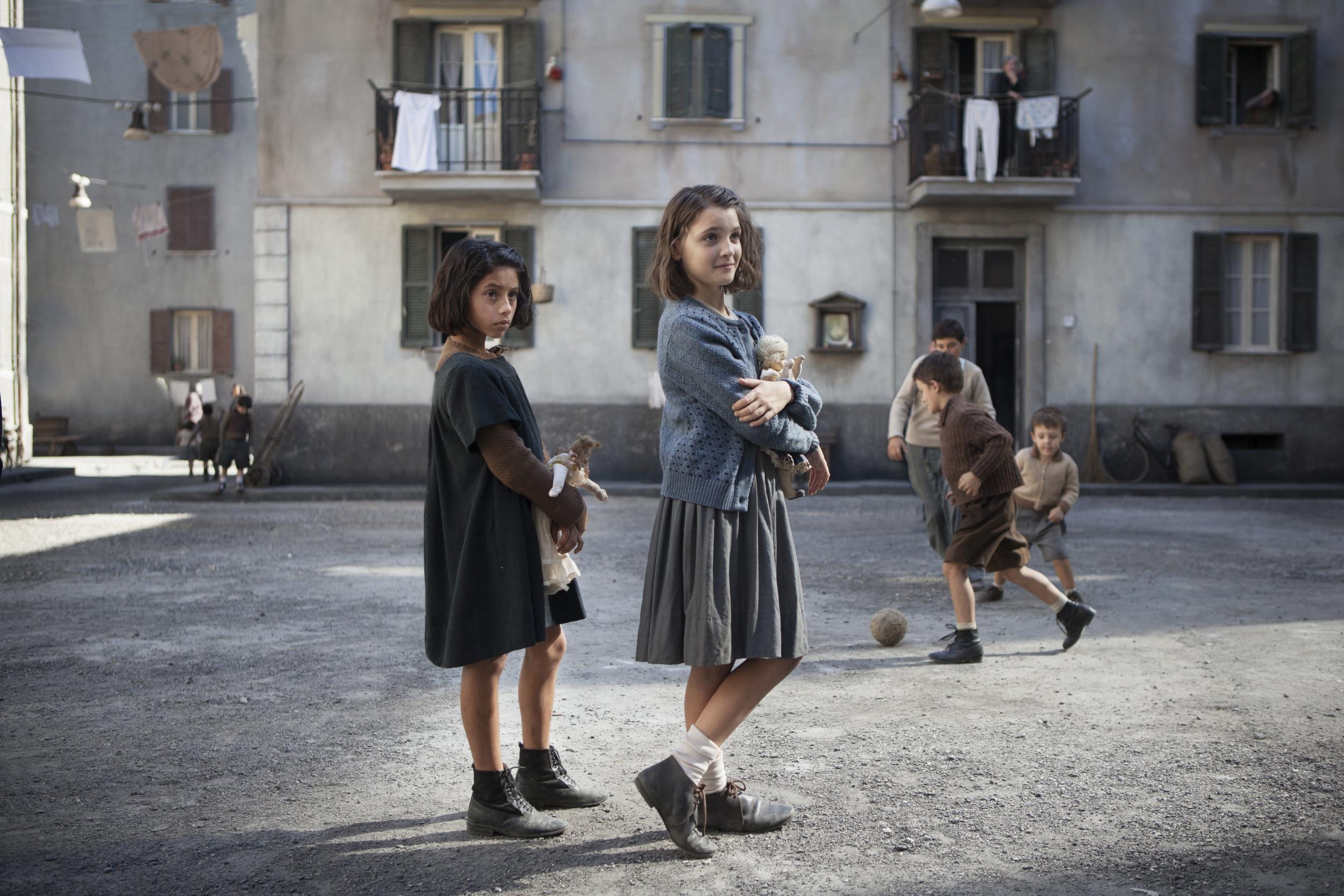My Brilliant Friend, episode 1, review: ‘The Dolls’ gives Elena Ferrante’s novels a faithful, cinematic treatment
HBO delivers a soaring adaptation of the Neapolitan literary phenomenon, in one of the biggest TV events of the year

Few books have captured the zeitgeist with such imagination as Elena Ferrante’s Neapolitan novels.
The four novel saga is an exploration of the lives of everyday people living through turbulent decades of Italian history, following the lives of Elena and Lila, whose friendship spans from the postwar period to the present day, set against the scenic backdrop of Naples. Ferrante explores the complexities of female relationships, and the struggles of the working class. Her scope is sweeping, and her pages overflow with so many characters that at the start of each book she provides a dramatis personae.
The new HBO adaptation, airing on Sky Atlantic on the UK, has done justice to her magnum opus, with a faithful, cinematic treatment of the boisterous society she portrays. It is a fitting tribute to Ferrante, who in the past decade has grown from little known, word-of-mouth Italian novelist, to international literary phenomenon.
This is partly down to her writing. But intrigue has also built around her anonymity. Ferrante’s aversion to publicity and any public appearances means her very identity is almost entirely unknown.
Now, fans and newcomers alike have been graced with this adaptation, diligently directed by Saverio Costanzo. The opening scene shows a modern day, aged Elena learning that Lila has gone missing, and so she begins to write the story of their friendship from the beginning.
With an authentic on-location setting, brilliant cinematography and the actors speaking the local dialect, My Brilliant Friend brings to life the vibrancy, poverty, grime and outright violence of Naples in the 1950s.
This first episode "The Dolls" is concerned with Elena and Lila’s unlikely merger as a pair. Elena is quiet and scholarly, but cannot resist the attraction of her more boisterous classmate – whose innate genius is first presented alongside her confrontational relationships with boys.
The episode does a lot of scene setting, and may appear at face value to be thin on plot, but rather it is laying the ground for the relationship dynamics, symbolism that will come to grow across the series. The dolls of the episode’s title will go on to be pivotal throughout the entire story, and have resonance with its ultimate conclusion.
In Ferrante’s novels, Mount Vesuvius looms large, casting an ever present threat over the people and their lives. It does not make an appearance here, but we do immediately meet some of the themes dominating their lives: the desire for education and the reliance on religion, the gossip and intrigue of local neighbourhoods and the balance of gender dynamics, plus the constant fear of being beaten up, or killed.
The young actresses cast as the girls truly capture the essence of Ferrante’s characters – particularly Ludovica Nasti as Lila. With her jet black hair and piercing eyes, she draws us in much the same way her feisty attitude does on the page.
Costanzo does a good job of introducing the girls, despite their relative silence and lack of communication in the early days of their friendship. They treat each other in an odd, suspicious manner, and we see the birth of a competitiveness which will come to dominate their childhood.
As a novel, My Brilliant Friend can be a difficult beginning, as it’s largely based around the girls as children, and their lives have not yet ventured outside of the confines of the unnamed neighbourhood. But as a narrator, Ferrante gives Elena the hindsight of her old age with which to look back at her early years, and this narration is evident in the adaptation too.
So much of how Ferrante writes is through inner monologue, deep thoughts from the imagination of Elena, who is supposed to be a novelist herself. There are hints of how this will manifest itself on screen.
In one scene, Elena wonders what it is that makes the adults in her life so angry. She imagines tiny insects creeping out at night and covering the neighbourhood completely. On screen, we see it play out for real in a moment of magic realism, which will surely be a recurring theme as the show continues.
My Brilliant Friend is a treat to watch, with all the quality of a Hollywood production, and in the era of Netflix domination, a sure fire catch for HBO. Those familiar with the books will find a faithful retelling, with everything presented exactly as they imagined. For the uninitiated in the world of Ferrante, this is a perfect way to start.
Join our commenting forum
Join thought-provoking conversations, follow other Independent readers and see their replies
Comments
Bookmark popover
Removed from bookmarks